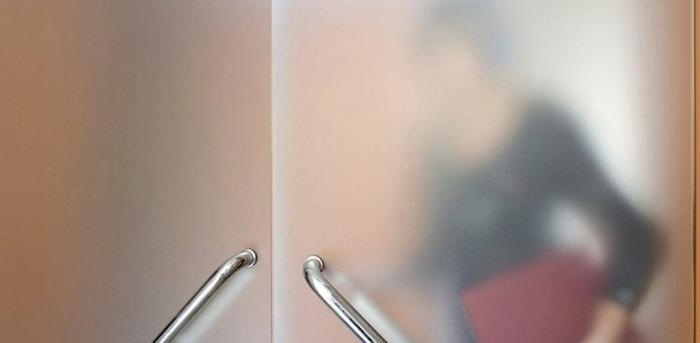
I’ll be the first to admit, I’m not a fan of the open office format. Ever since my first job, I’ve coveted an office I could call my own—or even one to share—if for nothing less than the psychological perception of a private space. Unfortunately for me, I’ve spent my career in an era and industry where “flexible desk space,” “cube,” and “pit” most accurately describe my workspace.
Of course, not everyone was relegated to mingle with the masses—someone always had an office, with his or her very own door. Maybe it was just because I didn’t have my own—call it office-envy—but there was always something about those damn doors that irked me.
Mostly, it was the fact they always seemed to be closed. In fact, over the years, I’ve realized that it’s more than jealousy or a loathing of the open-office that bothers me about closed doors—it’s the impact they have on those of us on the other side.
So, if you’re lucky enough to have an office—with a door—take this into consideration the next time you’re tempted to close it.
Communicus Interruptus
In spite of my disdain for open floor plans, I can’t deny the benefits to the constant flow of information that occurs when everyone on the team is within earshot and eyesight. Early on in my career, I sat right outside my manager’s office, and while it was intimidating at first, I ended up rocketing past the normal learning curve because I had the best teacher in the house right within shouting distance. Whenever I had a question, or she could see I was struggling, she used that opportunity to coach me, and as a result, I soon was the one sitting in the manager’s chair.
On the other hand, I had another manager who was almost always behind closed doors. And thus, he really had no clue how hard the team worked or the challenges they faced. I never really developed a great relationship with him, and I think we both missed out on the opportunity to learn from one another.
The physical barrier of a door—paper-thin as it may be—not only muffles the communication on both sides, but it blinds a manager to the general vibe and energy of the group. Keeping your office door closed may seem like the best way to keep your communications private, but do it too often, and you’ll find you’ve missed out on a lot of important communication happening on the other side.
Us Versus Them
In addition to keeping you distanced from the day-to-day interactions of your team, a closed door is also sending them the message that you prefer to keep yourself walled off. And this creates a pretty dangerous us-versus-them atmosphere.
For example, I had a manager who would get up and close his door every time anyone in the main area received a call from a client. It was as if simply doing our jobs was a disruption to his daily routine, and he couldn’t be bothered with how the sausage was made, so to speak. While he claimed the company was a “flat” organization, his habit of closing himself off from the work clearly said otherwise.
There was never any doubt who was the head of the group (I mean, he did have the office), but keeping his door closed showed that he wanted to make sure we knew it. By keeping yours open as much as possible, you’ll help show your willingness to be part of the team—not above it.
Am I Interrupting?
By far, my biggest beef with a closed door is the fact it forces everyone else to interrupt you if they need something. After all, a closed door implies—at least it should—a need for privacy. Yet, when a door is constantly closed, it’s hard to know when it’s OK to interrupt and when it’s not.
A great example is from the same manager I had who basically lived behind his closed door. In addition to not being very connected with his team, he was also a bit of a tyrant—and none of us wanted to knock when we had questions. As a result, we wasted who knows how much time debating whether we should brave interrupting whatever it was he was doing behind that door, and we were often left in the dark when we decided it wasn’t the right time to knock. Hardly productive.
Managers are expected to lead, mentor, and support—things that become pretty tough to accomplish when your employees are afraid they’ll bother you with questions.
There will obviously be times when a closed door is necessary, not to mention a courtesy, but use that perk sparingly and you’ll help cultivate a more collaborative and respectful environment in the office. Not to mention, help give some credibility to that open door policy we’ve all heard so much about.